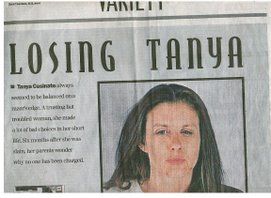|
Minnesota moved a step closer to reforming its troubled sex offender program Monday, with a recommendation that the Legislature create a network of regional treatment facilities to serve as alternatives to the current high-cost, high-security system. The recommendation, from a task force headed by former state Supreme Court Chief Justice Eric Magnuson, is the latest effort to solve the thorny question of how to protect the public from dangerous sex offenders while not violating their constitutional rights.
Minnesota moved a step closer to reforming its troubled sex offender program Monday, with a recommendation that the Legislature create a network of regional treatment facilities to serve as alternatives to the current high-cost, high-security system.
The recommendation, from a task force headed by former state Supreme Court Chief Justice Eric Magnuson, is the latest effort to solve the thorny question of how to protect the public from dangerous sex offenders while not violating their constitutional rights.
The state faces a federal lawsuit by several offenders who argue that the Minnesota Sex Offender Program (MSOP) subjects them to illegal indefinite detention without adequate therapy.
The MSOP was created in 1994 to confine and treat the most dangerous sex offenders under court commitment after they have finished their prison sentences. But the program has discharged only two offenders since its creation, and some argue that commitment amounts to a de facto life sentence. The program's population has ballooned to more than 600 offenders confined in high-security treatment facilities at a cost of approximately $120,000 annually per patient.
Chief U.S. Magistrate Arthur Boylan ordered the state to form the task force of jurists, lawmakers and other professionals to find less restrictive options to the prison-like treatment centers.
Rep. Jim Abeler, R-Anoka, who serves on the task force, said the judge is giving Minnesota time to find solutions, but that the clock is ticking for lawmakers. In coming months, he said, they will have to wade through the politics of an emotionally charged issue.
"There's a lot of third rails in politics. This is certainly one of them,'' Abeler said. "Showing kindness to sex offenders is not something people like to do. The challenge that's going to come at the end of the day is where do you put these people? It's going to have to be in Minnesota somewhere."
The alternative, he said, might be a federal takeover of what has been a state program.
All or nothing
State Human Services Commissioner Lucinda Jesson, whose agency oversees the MSOP, said she will meet with lawmakers in coming weeks to discuss the task force recommendations. She said she does not foresee an end to the current high-security treatment program, but said the task force report offers alternatives."The problem with civil commitment is it's all or nothing,'' said Jesson, who convened the task force at the judge's urging. "You're either in this expensive high-security facility or you are not. I think that is a quandary that I agree that is a concern."
In its recommendations Monday, which are not binding, the task force said the Legislature must fund less-restrictive residential facilities and get programs to support them operating in a reasonable time. It also said lawmakers must clear any regulatory or legal obstacles that would prevent access to these alternatives, while also ensuring public safety. There must also be funding available for public education about rehabilitation of sex offenders.
The task force recommended distributing the less restrictive facilities throughout the state, which will require navigating local laws that may restrict or impede placement of the facilities for sex offenders.
The task force will continue its work next year, examining potential changes to the way sex offenders are selected for commitment to high-security facilities and how they can earn release from the program.
Brad Schrade • 612-673-4777








No comments:
Post a Comment